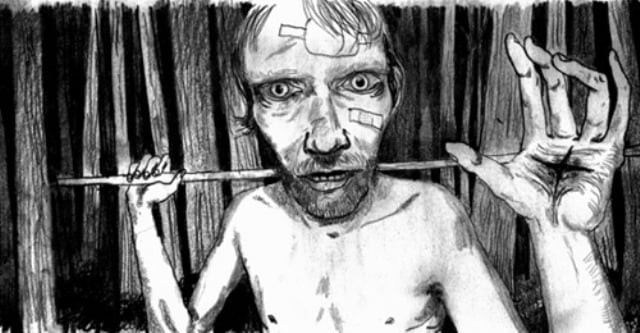Cainophobia is the irrational or exaggerated fear of newness. If our nation had a national disease, this would most likely be it because we seem to be carrying the maxim "old is gold" to unnatural heights.
Most Pakistanis have an undue fondness for traditions and cultural practices – practices that are often detrimental to them. Our obsession with rasm-o-rivaaj keeps us from relinquishing old ideas and replacing them with new and better ones.Doctors banging their heads against a wall, attempting to convince their patients to let go of their cherished (and altogether fallacious) beliefs on healthcare.
The thanda-garam myth
There is a widespread belief that various foods cause illnesses by altering our body temperature - the concept of thanda or garam food. This notion is completely untrue. The body maintains a core temperature regardless of what we eat and it is in fact the pathogenic microorganisms ingested with the food that cause illnesses.
When informed that such notions are false, patients not only show reluctance in changing their beliefs, but feel downright offended. They argue that such practices have been in their families for generation, and renouncing them would be an insult to their wise ancestors.
Epileptics aren't possessed by demons
We're obsessed with labeling diseases and constructing stigmas out of them. Another delusion is the frequent misdiagnosis of epilepsy or psychiatric illnesses for demonic possessions. Relatives of the patient will take him to far-flung shrines for exorcism and the person afflicted with the mental disorder often becomes a source of dishonour for his family.
Tuberculosis doesn't just affect the poor
Tuberculosis is widely thought of as a disease that afflicts the poor class. The infection itself is often not as perturbing as the psychological suffering caused through social admonishment. The cost of healthcare in Pakistan is often too high for an average Pakistani, forming a precariously sizable market for quacks and homeopathic specialists. Their “medicines” are ordinarily cheaper, but offer little more than just the placebo effect.
Homeopathy explained
Homeopathic medicines, we now know, are nothing but pure solvent (either water or alcohol). The idea is that the more diluted a medicine is, the more effective it becomes. However, these medicines are diluted so extensively that often not a single molecule of the active ingredient remains in the final product!
The hypothesis that water retains the memory of the ingredients that it touches, practically eats itself. If this is the case, shouldn't it also be retaining memory of the harmful substances it more commonly comes in contact with, say water recovered through sewage treatment?
Yet, you can find thousands of people in the country who would blithely testify in favour of such practices. They tell tales of relatives and friends who were cured by homeopathic medicine when the allopathic remedies failed.
One may try to explain to them the power of the placebo effect, and the delayed action of many allopathic therapies, but they’re unlike to sway.
We all find comfort in familiarity and view novelty with suspicion, but some people have made a habit out of anchoring themselves to inefficient practices in the name of culture.
Life is defined by its dynamism. We evolve, improve and adapt ourselves with the changing world and the ever-expanding reservoir of human knowledge. Putting one's finger on an old custom and adhering to it with cross-armed stubbornness is unacceptable.
Traditional remedies: Old is not always gold
Pakistanis have a strange obsession with using harmful traditional remedies to cure illnesses.



COMMENTS
Comments are moderated and generally will be posted if they are on-topic and not abusive.
For more information, please see our Comments FAQ